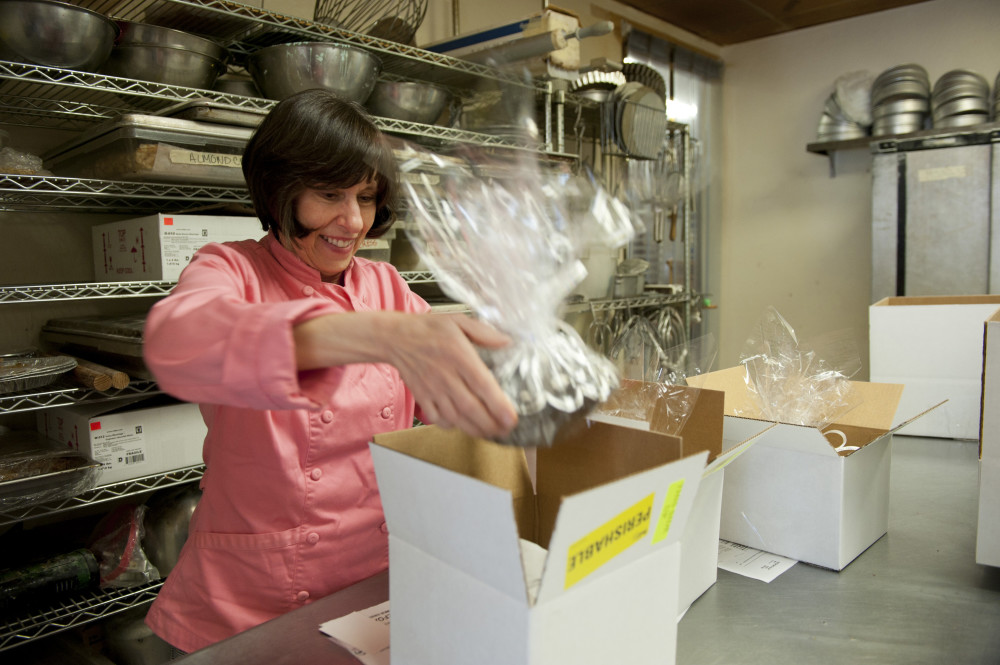By Mark Glover
The Sacramento Bee.
Sacramento-area women running their own firms say they are not surprised by the growth in women-owned companies in the region and across the state.
The increasing gender diversity among company managers and workers combined with a growing number of women who appear willing to strike out on their own, has increased the number of women-owned firms in Sacramento to 59,200, up from 56,700 in 2014, according to the 2015 “State of Women-Owned Businesses Report.”
The report — commissioned by American Express OPEN, the small-business services division of American Express — also estimates those businesses produced combined annual revenue of $9.4 billion, up from $8.5 billion, respectively, in 2014.
That’s just part of a statewide trend. Amex says California is home to a nation-leading 1.2 million women-owned firms generating combined annual revenue of $219 billion, up from an estimated 1.1 million women-owned California firms generating $199.2 billion in 2014. Amex said women are operating firms in industries across the board, but the greatest concentrations are in health care, social assistance (including residential care facilities and child care providers) and social service-related firms.
Valerie Dow, co-owner of Cybertary Inc., believes that the flexibility and opportunities afforded by the proliferation of online businesses are part of a larger trend fueling growth of women-run firms. In 2007, Dow and her friend and HP Roseville colleague, Tina Angell, bought the first franchise of Cybertary Inc., offering administrative office services to small- and medium-size businesses.
Dow and Angell went from offices to working in their Roseville homes, overseeing “team members” also working from their homes. Many company services are provided via roseville.cybertary.com.
“The type of business we have offers so much more flexibility,” said Dow, who spent 14 years with Federal Express, where she was a senior manager, and another 10 years with Hewlett-Packard, working in global operations before setting out on her own. “It creates a better home balance. You can work whenever you want to work. For many women, that’s an important consideration.”
And access to technology not available to mothers and grandmothers to start an enterprise from home makes it “much easier than starting a brick-and-mortar business,” she said.
Dow’s advice to prospective female entrepreneurs: “There are probably two things that make a difference.
buy cialis super force online healthcoachmichelle.com/wp-content/themes/twentytwentyone/inc/en/cialis-super-force.html no prescription
For one, having enough money to invest in the business to get it started, and two, you really, truly have to treat it like a business. It needs to be structured, and you need to be structured.”
While local businesswomen offered few accounts of gender barriers, stereotypes apparently hang on in some quarters.
Gina Lujan, CEO and co-founder of Hacker Lab, the Sacramento-based venture that helps nurture technology startups, says she experienced frustrations along the way to launching her business in 2012.
Lujan recalled checking out prospective operating spaces and sometimes being ignored while hosts gravitated to her male colleagues: “I was the CEO and it would be like, ‘Oh, she’s in charge?’ ”
There is statistical evidence to suggest that the proverbial glass ceiling remains entrenched at large public companies in California. The most recent “Study of California Women Business Leaders” report released in December by the UC Davis Graduate School of Management found that women hold only about 1 in 9 executive and board positions among California’s 400 largest public companies and continue to earn less than their male counterparts.
On the surface, there appears to be no correlation between the UCD report and the Amex study. However, the author of the UC Davis report believes there might be a connection.
“I think it’s possible that women who were frustrated in the public corporate world are turning around and starting their own companies,” said Amanda Kimball, the UCD Graduate School of Management research specialist who has authored the last five annual studies.
Kimball believes it’s possible that female-operated firms will grow to the point where they will start tipping the balance of female corporate leadership from its current status.
But she adds: “I think if that happens, it will be a long process.”
Rose Lester, president of Lester Consulting Group Inc., in Sacramento, started her business in 1989, a time when women-run firms were far less common. Lester originally was set on being a health care consultant, but her experience working with nonprofits eventually evolved into a firm offering a wide range of consulting services to nonprofits, including feasibility studies, fundraising campaigns, major gift programs, strategic planning, board governance and retreat planning.
Today, Lester and seven full-time employees help clients both local and nationwide. She advises prospective female entrepreneurs to not get hung up on potential gender issues and to think in practical business terms.
“It helps to have a really good lawyer, accountant and bank … and (human resources) counsel if you don’t have an HR department. And, of course, a good business plan,” she said.
Lester also speculated that small- to medium-size businesses are more suited to “open thinkers and risk-takers,” compared with large, for-profit corporations that historically have been a bastion of male executive leadership sticking with more traditional business models.
“On the other hand,” she added with chuckle, “American Express has not asked me to sit on its publicly traded board.”














































































































































































































































































































































































